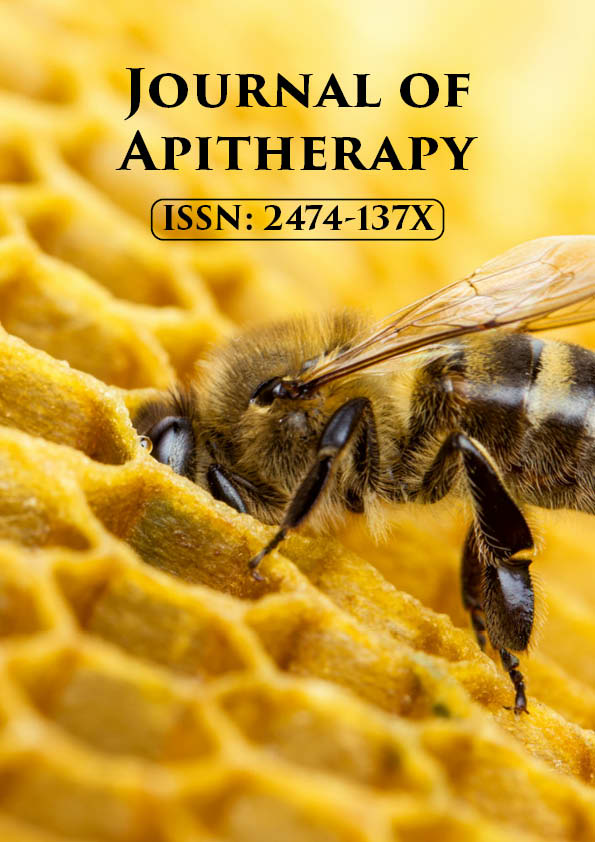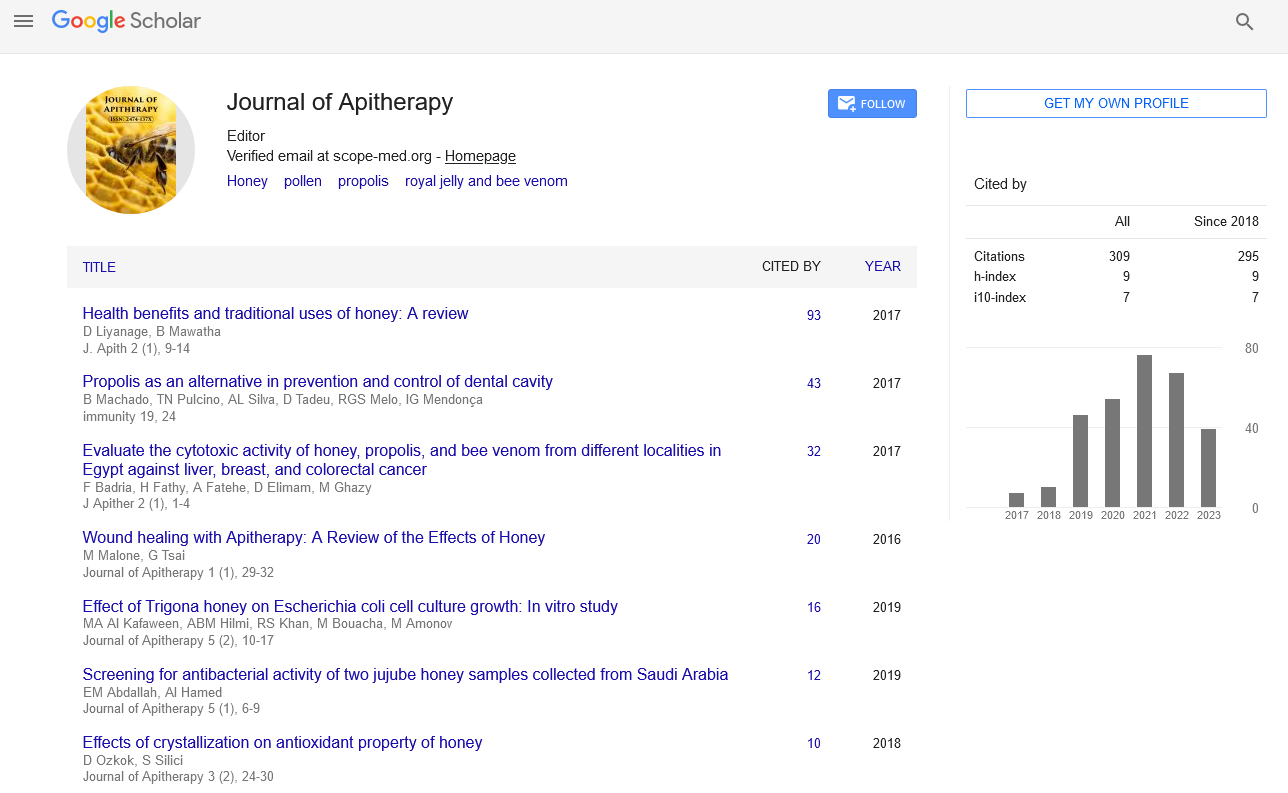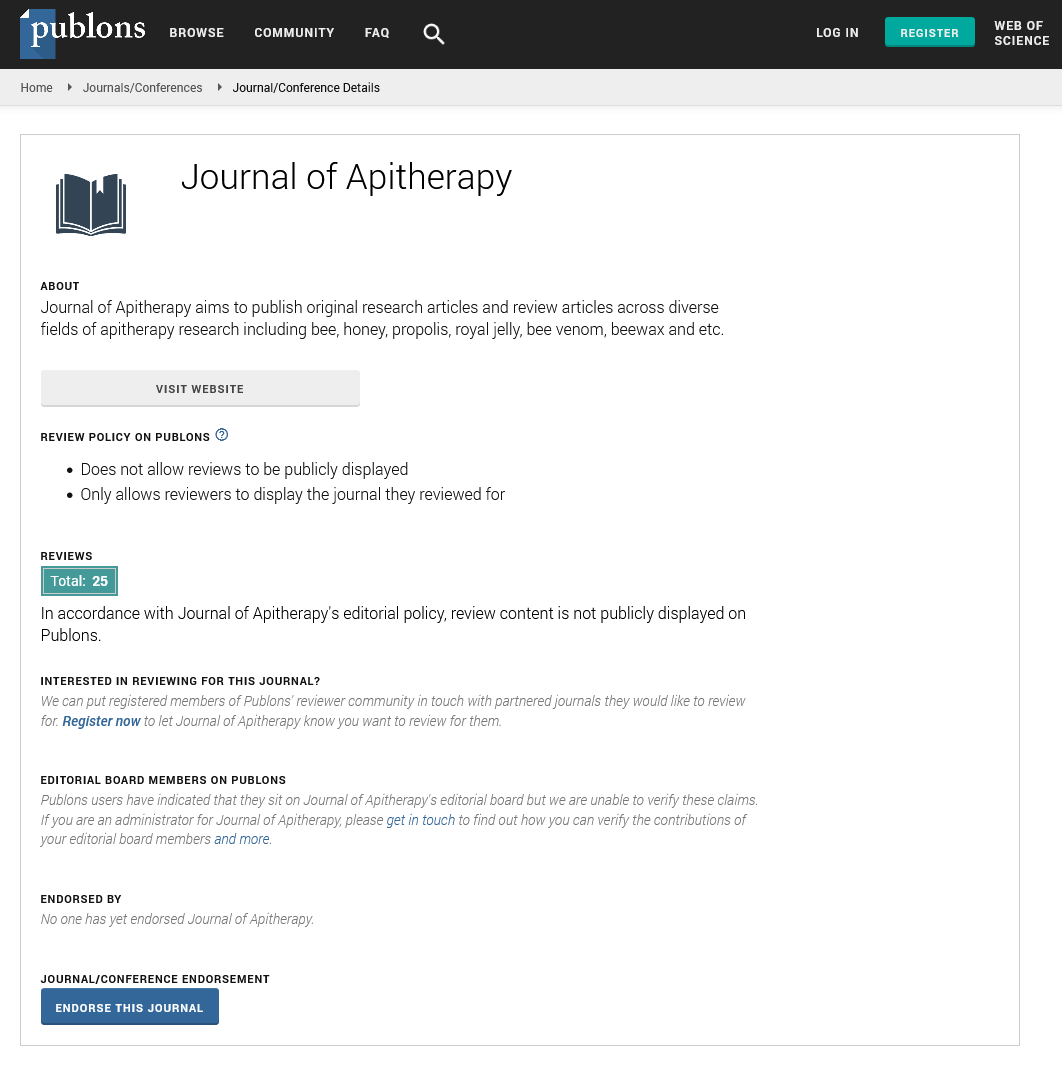Chemical and biological diversity of propolis samples from Bulgaria, Libya, and Egypt
Abstract
Farid A. Badria, Hassan M. Fathy, Ashraf S. Fatehe, Mohamed H. Ahmed, Mohamed G. Ghazy
Introduction: Honey bee propolis is an important product because it contains bioactive substances such as total phenolics, flavonoids, and organic acids for treatment of several diseases including cancer.Aim: In this study, the identity of chemical composition and biological activity of propolis samples from Bulgaria, Libya, and Egypt were examined.Methods: Chemical composition and biological activity of propolis samples from Bulgaria, Libya, and Egypt were examined using analytical methods and 3-(4,5-dimeth-yl-thiazoyl)-2,5-diphenyl-tetrazolium bromide cell-based assay against liver (HepG2), breast (MCF-7), and colorectal (Caco-2) cancer cell lines.Results: The results showed that Libyan propolis proved to has the most cytotoxic activ-ity among all tested propolis samples HepG2 (84.99%), MCF-7 (83.57%), and Caco-2 (79.63%). Conclusion: Propolis could be used as cancer therapeutic agent or to complement conventional cancer treatments. It is important for propolis users, such as companies producing propolis preparations, to know the characteristic concentrations of the above-mentioned constituents of this propolis type to guarantee a good quality product with better biological activity.
PDF






